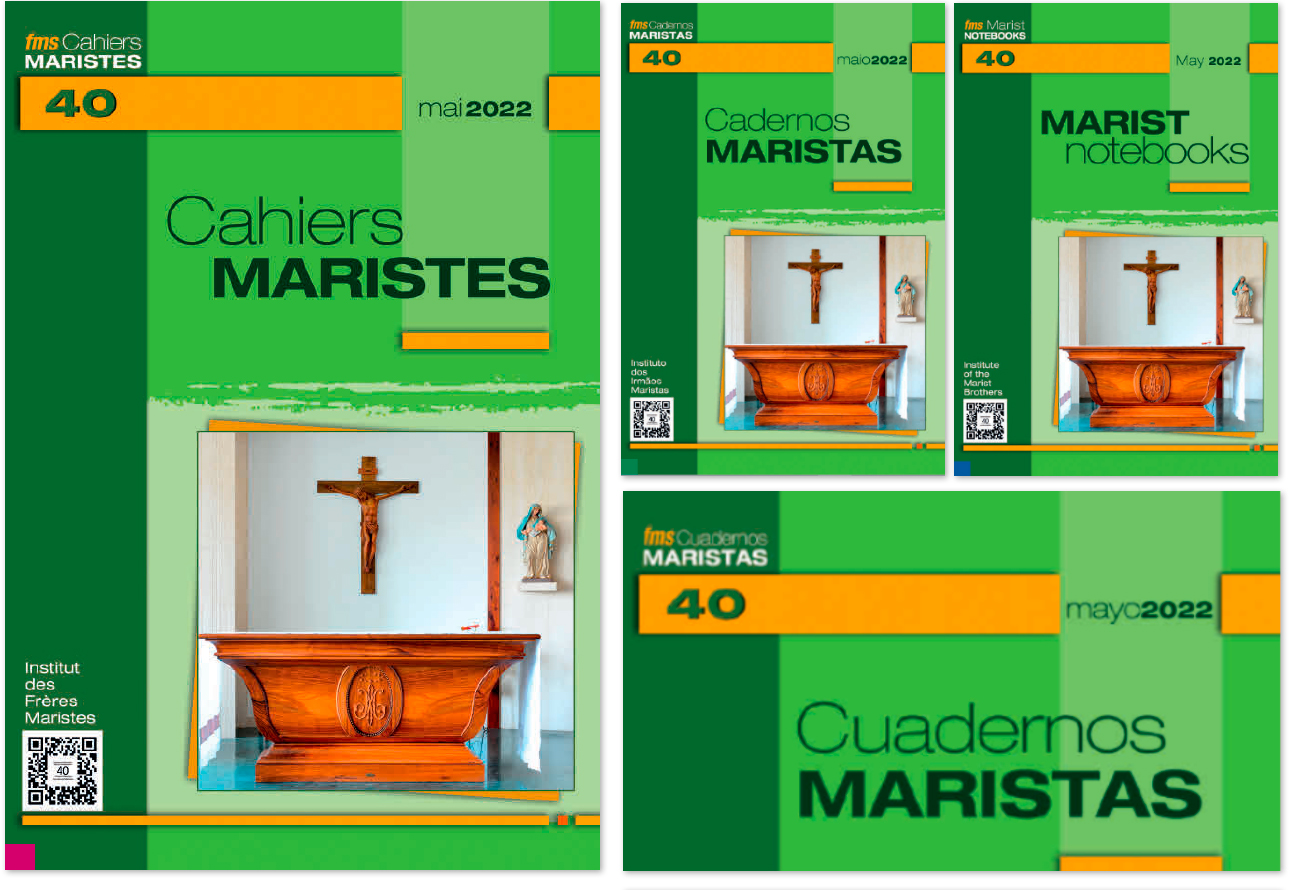
Marist Notebooks 40
The International Commission of Marist Patrimony has just published the 40th edition of Marist Notebooks. It also presents a survey in order to know the users’ experience and to look for new ideas so as to enrich the next editions:
The Commission has also conducted interviews with some of the authors of the articles published in the last issue, which can be consulted at the end of this reading.
Download PDF – Marist Notebooks 40: English Español Français Português
The editorial, signed by Brothers Antonio Ramalho, President of the Commission, and André Lanfrey, Coordinator of the publication, follows below.
The heritage commission decided that this number 40 of the Cahiers Maristes would devote a special feature to Marist spirituality. And in fact, four articles approach this subject from different angles. The most fundamental, on the presence and love of God (Br. Michael Green), places this aspect of our spirituality within a long spiritual tradition. It is taken from a more extensive study, which is available in full on Champagnat.org The study on “The Spirit of the Institute” (Br. A. Lanfrey) attempts to show that this expression is to a large extent equivalent to the more recent concept of Marist spirituality. Brother Antonio Martínez Estaún has devoted his work to a Marist virtue that is difficult to define: modesty. Finally, Brother Afonso Murad invites us to a theological discernment on Marian devotion, which is very useful today, even for religious.
The following two articles are consistent with each other since they both deal with the Institute as an institution concerned with preserving its memory and history.
The article by M. Flores Sánchez deals with this question at the level of the Chilean province. The second (F. A. Lanfrey & Adrien Mercier) outlines an administrative history of the institute by researching the sources of the large Access computer file developed at the turn of the 20th and 21st centuries. These two articles therefore invite us to become more aware of the memory revolution that is taking place before our eyes, allowing many investigations but also generating new problems.
The two documents commented on are also very similar in subject and date since they deal with Br. François’ stay in Rome in 1858. They reveal to us many things about the state of mind of the Institute after the General Chapter of 1852-54; about the personality of Brother François, which is still not well known; about the Roman environment of the time and about the delicate relations between the Fathers and the Marist Brothers. More globally, these documents show how problematic was for the Institute the passage from the time of the foundation to that of its structuring as a body governed by a rule, constitutions and the tutelary authority of Rome.
Finally, we thought it would be useful to give some brief information on publications or events of patrimonial interest.
